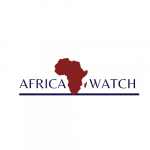Rwandan authorities have intensified their clampdown on political opposition with the re-arrest of Victoire Ingabire Umuhoza, leader of the unregistered Dalfa-Umurinzi party, Human Rights Watch (HRW) reports.
On June 19, Ingabire was detained again and charged with “forming a criminal group” and “inciting public disorder.” The arrest took place amid a wider trial targeting party members and opposition figures, drawing sharp criticism from rights defenders. HRW described the charges as “politically motivated” and part of a broader strategy to silence dissent.
This is not Ingabire’s first brush with repression. In 2012, she was sentenced to 15 years on conspiracy and genocide ideology charges—widely condemned by international observers—before receiving a presidential pardon in 2018.
Harassment, Detention, and Legal Barriers
The crackdown has gone beyond Ingabire herself. Dalfa-Umurinzi party members have faced repeated harassment, with several still in prolonged pre-trial detention since 2021 for organizing “Ingabire Day” commemorations. Others have been held without transparent legal proceedings or access to due process.
Rwanda continues to block Dalfa-Umurinzi’s registration, barring it from participating in elections and denying its supporters political representation. The government’s refusal to grant legal recognition to the party has had a chilling effect on political organizing nationwide.
Charter Violations Mount
These actions constitute serious violations of Rwanda’s obligations under the African Charter on Human and Peoples’ Rights, to which it is a state party:
-
Freedom of expression and association (Articles 9 & 10): Authorities have equated encrypted communications and peaceful political education with criminal incitement. This stifles citizens’ ability to voice political opinions and join opposition groups without fear of reprisal.
-
Right to a fair trial (Article 7): The prolonged, opaque detentions of Dalfa-Umurinzi members—some held without trial for over three years—violate the Charter’s guarantees of timely and impartial legal proceedings.
-
Right to political participation (Article 13): The government’s refusal to register Dalfa-Umurinzi effectively blocks its members from electoral participation, eroding democratic competitiveness and entrenching one-party dominance.
HRW’s Call to Action
“The Rwandan government’s use of the legal system to punish peaceful opposition activity is deeply concerning,” said Human Rights Watch. “Rwanda must immediately release Victoire Ingabire and her colleagues, end politically motivated prosecutions, and uphold its obligations under the African Charter.”
As Rwanda further narrows its political space under the guise of maintaining public order, its international credibility and constitutional commitments to democratic governance hang in the balance.

